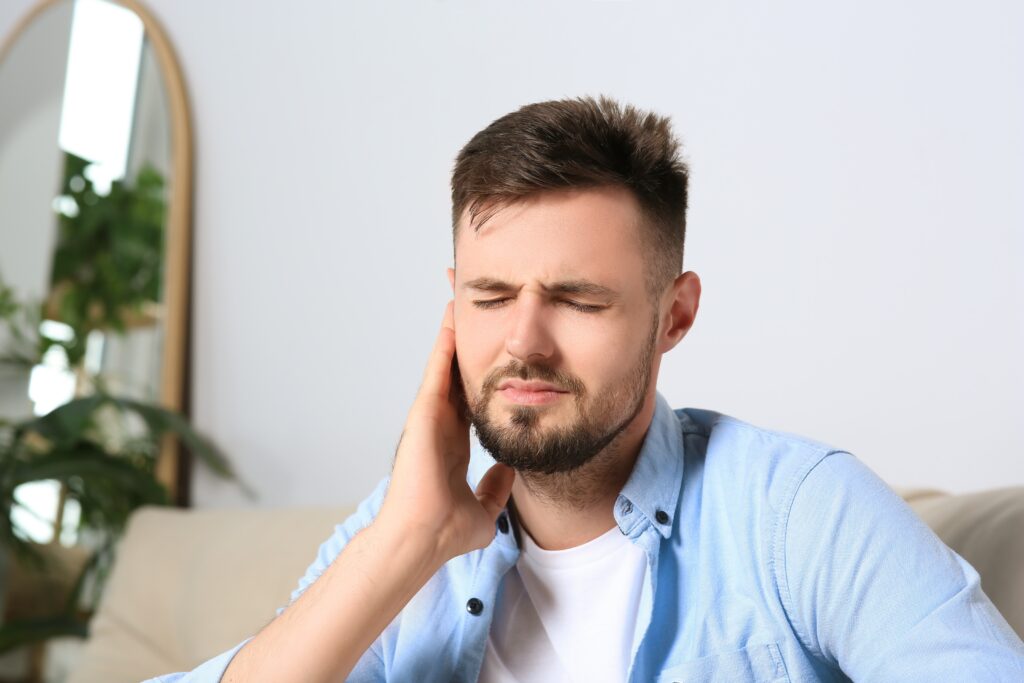Soothing a Sore Throat and Clogged Ears: Relief Strategies and Home Remedies
A sore throat coupled with clogged ears can be a frustrating and uncomfortable experience. These symptoms often occur together due to underlying causes that irritate the upper respiratory tract. The good news is, several effective strategies and home remedies can bring relief. This guide explores the causes of sore throat and clogged ears, delves into soothing treatments, and provides a comprehensive FAQ section to address common questions.
Understanding the Causes
Several factors can contribute to a sore throat and clogged ears. Here’s a breakdown of the most common culprits:
- Viral Infections: The majority of sore throats and clogged ears stem from viral infections like the common cold, flu, or mononucleosis. These viruses inflame the mucous membranes in the throat, sinuses, and Eustachian tubes (the tubes connecting the middle ear to the back of the nose).
- Bacterial Infections: While less frequent, bacterial infections like strep throat can also cause these symptoms. Strep throat typically presents with a fever, swollen lymph nodes, and white pus patches on the tonsils.
- Allergies: Seasonal allergies irritate the throat and nasal passages, leading to congestion and a sore throat.
- Dry Air: Dry environments can parch the throat tissues, causing irritation and soreness. This is especially common during winter months when indoor heating systems dry out the air.
- Irritants: Smoke, dust, and other airborne irritants can inflame the throat and irritate the Eustachian tubes, leading to a feeling of fullness or pressure in the ears.
- Acid Reflux (GERD): Stomach acid backing up into the esophagus can irritate the throat, causing a burning sensation and discomfort.
Soothing Strategies for Relief
If you’re experiencing a sore throat and clogged ears, several strategies can help ease the discomfort and promote healing:
- Hydration is Key: Drinking plenty of fluids like water, herbal teas, or clear broths helps thin mucus and keeps the throat moist. Aim for eight glasses of fluids per day or more, especially if you have a fever.
- Gargle with Warm Salt Water: Mix half a teaspoon of table salt in a warm glass of water. Gargle several times a day to soothe a sore throat and remove irritants.
- Soothe Your Throat with Lozenges or Sprays: Over-the-counter lozenges and throat sprays can provide a numbing or cooling effect on the throat, offering temporary relief from soreness. Opt for sugar-free varieties to avoid further irritation.
- Embrace the Power of Steam: Inhaling steam from a hot shower or using a humidifier adds moisture to the air, loosening mucus and easing congestion in the ears and throat.
- Rest and Relaxation: Your body needs energy to fight off infections. Getting plenty of sleep allows your immune system to work its magic and can shorten the duration of your symptoms.
- Over-the-Counter Pain Relief: Medications like acetaminophen or ibuprofen can help manage fever, headaches, and overall discomfort associated with a sore throat and ear congestion.
Natural Remedies for Added Comfort
In addition to the strategies mentioned above, consider incorporating these natural remedies for further relief:
- Honey: A spoonful of honey can soothe a sore throat. Honey has antibacterial properties and can act as a cough suppressant [1]. However, avoid giving honey to children under the age of one.
- Warm Compress or Ice Pack: Applying a warm compress to the outside of your throat or a cool compress to your forehead can provide localized pain relief.
- Ginger Tea: Ginger has anti-inflammatory properties that can help ease throat discomfort. Sip on a warm cup of ginger tea with honey for added relief.
- Warm Salt Solution for Ears: In some cases, a warm salt solution can help relieve ear congestion. Mix a quarter teaspoon of table salt in a cup of warm water. Dip a washcloth in the solution, wring it out, and place it over your ear for a few minutes. Do not put the solution directly in your ear canal.
When to See a Doctor
While most cases of sore throat and clogged ears resolve on their own within a few days, there are situations where seeking medical attention is crucial. Here are some signs that warrant a doctor’s visit:
- Fever above 100.4°F (38°C) for more than three days
- Severe sore throat that makes swallowing difficult
- Swollen lymph nodes in the neck
- White pus patches on the tonsils (indicative of strep throat)
- Earache that is severe or accompanied by drainage
- Difficulty hearing
- Facial pain or swelling
- Symptoms that worsen or persist for more than a week

